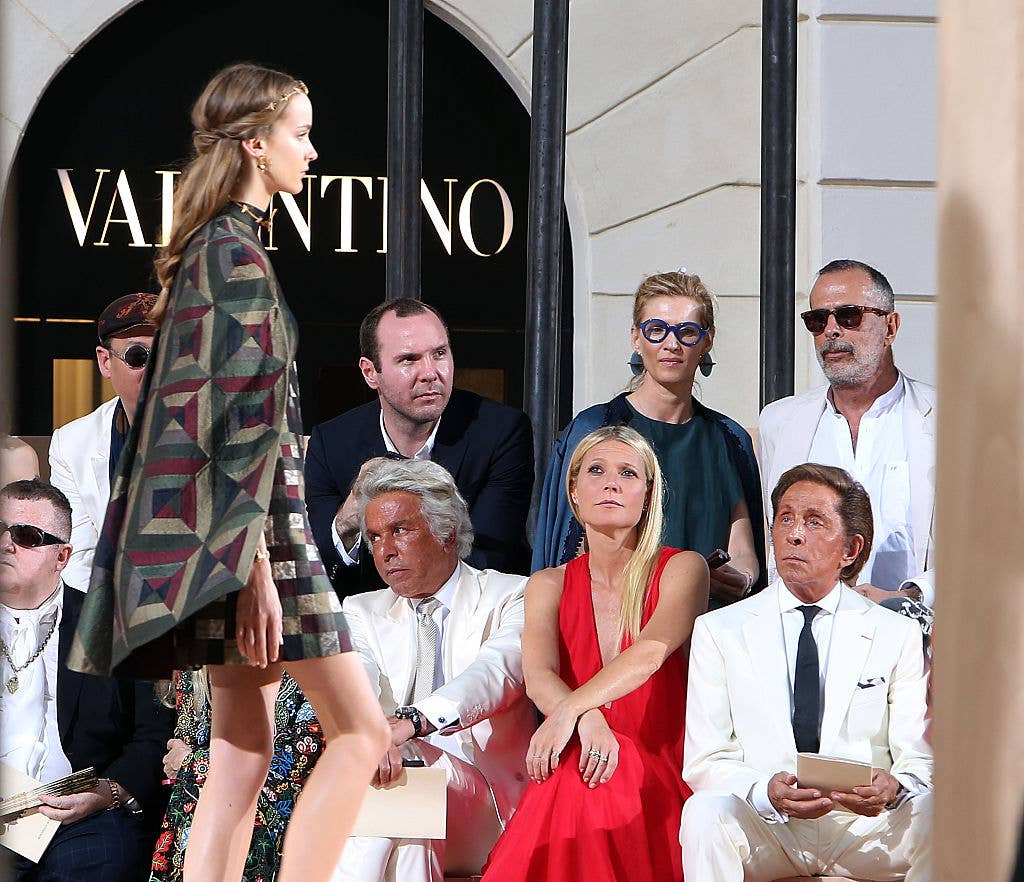
Luxury Fashion House Valentino Drops Fur From Future Collections
Fashion giant Valentino joins the rapidly growing list of luxury fashion brands that are removing fur from all future collections. The Italian fashion house announced that it will go fur-free to support sustainability in manufacturing and the fashion industry as a whole. The designer brand is the latest of a long list of companies that have moved away from fur for its collection. Valentino and its subsidiaries such as Valentino Polar will have completely removed fur by 2022.
“The fur-free stance is perfectly in line with the values of our company,” CEO Jacopo Venturini said in a statement. “We are moving full-steam ahead in the research for alternative materials in view of a greater attention to the environment for the upcoming collections.”
Valentino’s move to go fur-free shows how the fashion industry is shifting away from impractical materials in favor of more ethical and environmentally conscious methods. Luxury brands have been tied to fur for decades, but fur’s time is quickly phasing out. The new brand will champion more sustainable materials bringing more attention to the movement sweeping across luxury fashion.
Luxury fashion is moving away from fur as fashion houses across the globe announce that fur will no longer be featured in their collections. Earlier this year, Alexander McQueen and Balenciaga dropped fur from their brand’s fashion lines. Gucci was an early adopter of fur-free fashion when it cut fur from its materials in 2017. Beyond that, other fashion giants such as Chanel, Prada, Versace, Adidas, and Michael Kors have enacted similar policies. The entire industry is taking note from the companies, causing more brands to readjust their designs.
The fur-free fashion movement is not limited to brands. Retailers nationwide have dedicated themselves to remove all fur fashion from stores. The move will encourage other retailers to abandon fur, especially with decreasing consumer demand. Retailers such as Macy’s, Bloomingdale’s, Nordstrom, and Saks Fifth Avenue have banned fur in their catalogs.
“We recognize that trends constantly evolve and that the sale of fur remains a significant social issue,” Chief Merchandising Officer at Saks Fifth Avenue Tracy Margolies said. “As such, eliminating it from our assortment is the right step for us to take at this time.”
Valentino is moving towards a manufacturing policy that champions cruelty-free materials. The fashion brand’s decision has been met with praise from animal rights groups Humane Society of the United States [HSUS] and Humane Society International [HSI].
“Valentino dropping fur is a major nail in the coffin for the cruel fur trade,” HSI Italy Director Matina Pluda said. “Like so many other designers, Valentino knows that using fur makes brands look outdated and out of touch, and fur industry certification schemes are little more than the hollow PR spin of an industry that kills 100 million animals for fur a year.”
Beyond the fashion brands and retailers, fur bans are being considered by legislatures across the country. In 2019, California banned the sale and manufacturing of fur, making itself the first state to pass a fur ban. Since then, New York and Oregon have considered statewide fur bans. The shifting atmosphere and attentiveness to ethical, sustainable material are making fur fall quickly out of fashion.
More From The Beet






